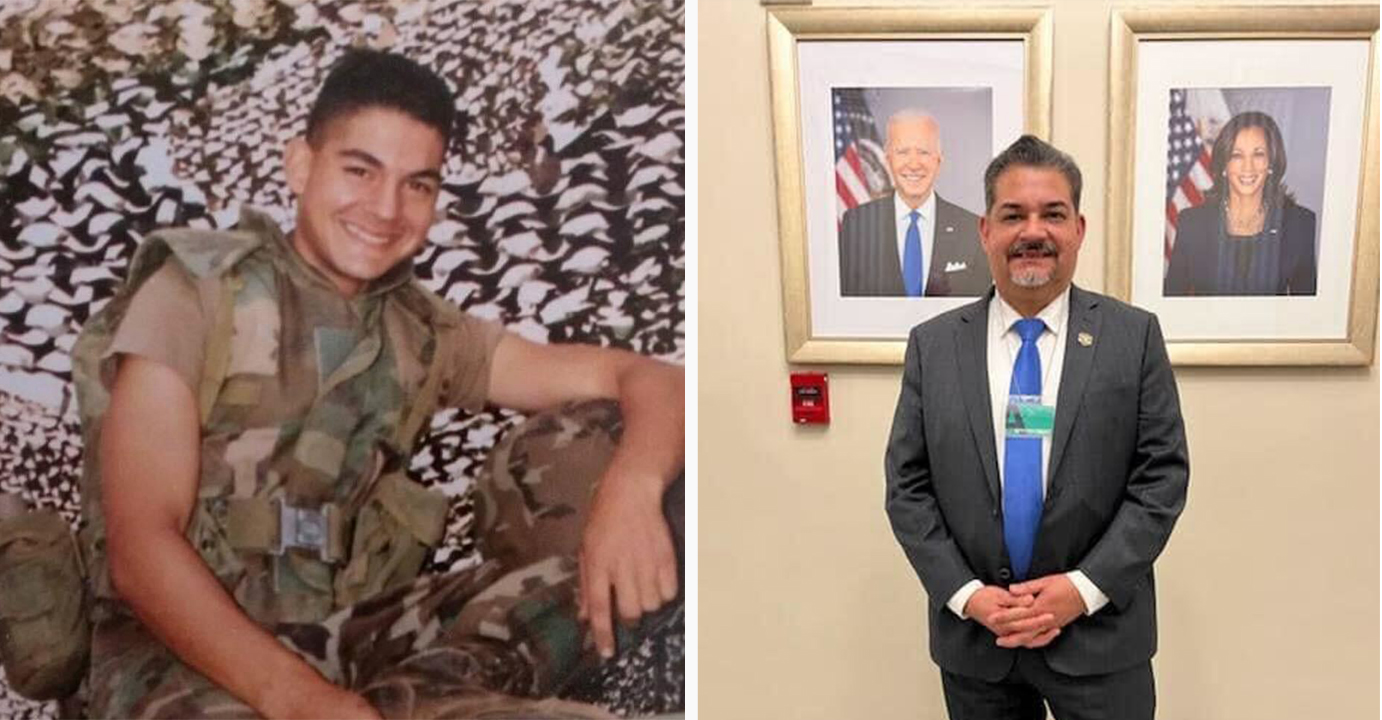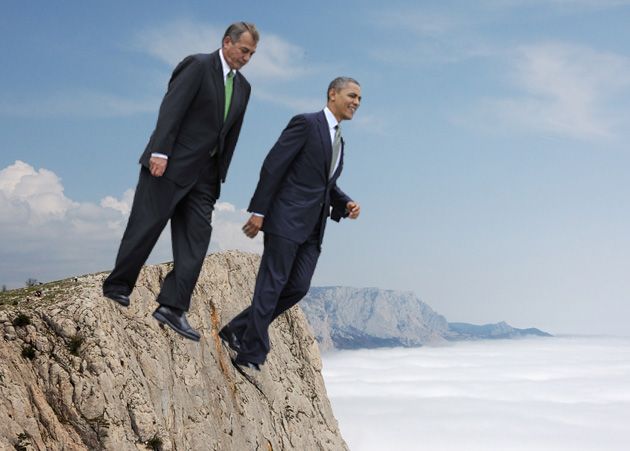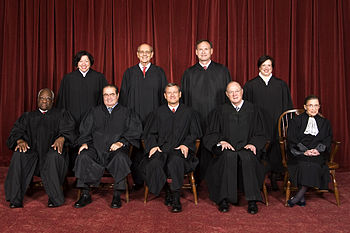On Aug. 6, 2001, Salvador Llamas, a U.S. Marine and Mexican immigrant, welcomed his second child into the world — me. He’d soon leave me to fight in active combat to protect both our freedoms.
Despite his time in service leaving him disabled, my father took great pride in his service because of the doors it opened for him. He raised his children to have similar pride in their country, constantly reminding us of how lucky we were to be born in the land of the free — to be in a country of opportunity, and more importantly, a land of choice.
Thirty-six years before my birthday — on Aug. 6, 1965 — President Lyndon B. Johnson signed the Voting Rights Act. This historic decision gave the power of voting to thousands across America, including my father.
Due to his time serving, he was able to obtain citizenship, and with that, the ability to vote in elections. To this day he holds that right as a high honor. Every election season he sits down at the kitchen table with his booklet and ballot and meticulously goes through the options to make sure he is informed in his decisions.
After turning in his ballot he wears his “I voted” sticker as though it were the highest badge of honor. A symbol of his sacrifices — and the sacrifices of many before him — that lead to the freedom of choice, putting power into the pens of every American citizen who takes that privilege on Election Day to make their voice heard.
STILL SERVING: Salvador Llamas, left as an active marine and right as a White House visitor, embodies the significance of the right to vote. (Photos courtesy of Mel Llamas/ The Express)
However, given the rising cost of living in today’s society, some people have to choose between exercising their voice and providing for their livelihood. This is due to the fact that there is no unanimous decision at a national level on whether Election Day should be a national holiday, leaving the decision to the states.
When boiled down, the right to vote is paramount, if not the core of what it means to be an American citizen. It is how the people are able to voice their concerns and be accounted for in presidential elections. At the same time, approximately 170 million Americans work according to the Bureau of Labor Statistics, and for many, Election Day isn’t a day off. The power at the core of our citizenship should be afforded to all of us — regardless of social status — by ensuring that working hours don’t interfere with the right to vote.
Some states have taken proactive measures to assist with this problem, including California. Nov. 5 is not considered a holiday in the state — but employers are required to give advance notice at least 10 days prior if an employee is scheduled on Election Day.
If employees are scheduled to work, then they are allowed to request a maximum of two paid hours either at the start or end of their shift in order to vote. In casting their vote, an employee can take longer if needed, but only the two hours will be paid. To take advantage of the two designated voting hours, the employee must give their employer at least two days’ notice.
The state of California recommends “whichever (option) allows the most free time for voting and the least time off from your regular working shift, unless you make another arrangement with your employer.”
However, there are still 19 states that do not mandate Election Day as a holiday, nor do they require employers to provide time off for employees to vote. According to data collected by the Movement Advancement Project (MAP), the workers in these states total 37% of the American population.
That is close to half of Americans whose voices are threatened or even silenced due to circumstances outside of their control. Establishing Election Day as a national holiday will allow more access to all. And it seems like the push to make it a holiday is growing in popularity.
In a national survey done by Pew Research, they found that 72% of Americans agreed that Election Day should be a national holiday. This isn’t even a dividing issue between the two parties. The survey found that 78% of Democrats and 68% of Republicans want to enact this holiday. Voting is our birthright as Americans — there should be a day to honor that.
Arguments reported by Kirstin Garriss from KIRO7 in her article on the subject explain that another national holiday would increase problems for places that rely on tourism and that the cost to taxpayers would be close to billions of dollars. However, these arguments are weak when compared to the power and meaning that comes with accessible voting.
As America has grown, we’ve changed and added holidays. We made Juneteenth and Martin Luther King Jr. Day federal holidays. Carla Hall, editorial writer for the Los Angeles Times, argued that Presidents Day should be traded for a national Election Day.
“If we’re just using the day to trade in old mattresses for new ones,” Hall said, “how about we also swap what has become a lackluster holiday for what could be a meaningful one?”
Swapping the holidays would eliminate the concerns of adding another holiday. Replace the capitalist, money-hungry values of corporate America with the true values that this country was built on: the right to speak, the power of voice to the people, the power that my father fought to protect for every American citizen despite not being a citizen himself. He understood the power of freedom and the right to vote, and sacrificed his body to gain it. He passed this gift to me and my siblings and ensures we use it — sending reminders and inviting us to join the kitchen table, so we too can don a badge of honor.
On Feb. 13, California representative Anna G. Eshoo introduced the Election Day Holiday Act of 2024, which would make Election Day a national holiday. As of now, it has been referred to the House Committee on Oversight and Accountability. It is unclear if it will be passed before the 2024 election.
But regardless of whether the legislation passes, register and vote. Everyone should vote. It’s your birthright. Your voice. Your power.
Use it.
TOP ILLUSTRATION: Woman drops her vote in the ballot. (Stock photo courtesy of Envato Elements)
Mel Llamas is a staff writer for The Express. Follow him on X, formally Twitter, @MM_Llamas




